DevOps vs DevSecOps: Key Differences Explained
14 MIN READDevOps and DevSecOps are two modern software development approaches that are making headlines even in 2025. Both help teams build, manage, and deliver software smoothly and efficiently.
Between the two, DevOps works with “development” and “operations” to provide a collaborative and shared responsibility environment for building applications professionally. On the other hand, DevSecOps introduces “security” along with “development” and “operations.” The fundamental purpose behind both these approaches is to dismantle the siloed teams with development, quality testing, IT operations, and security. This allows the respective teams to actively collaborate and develop better software.
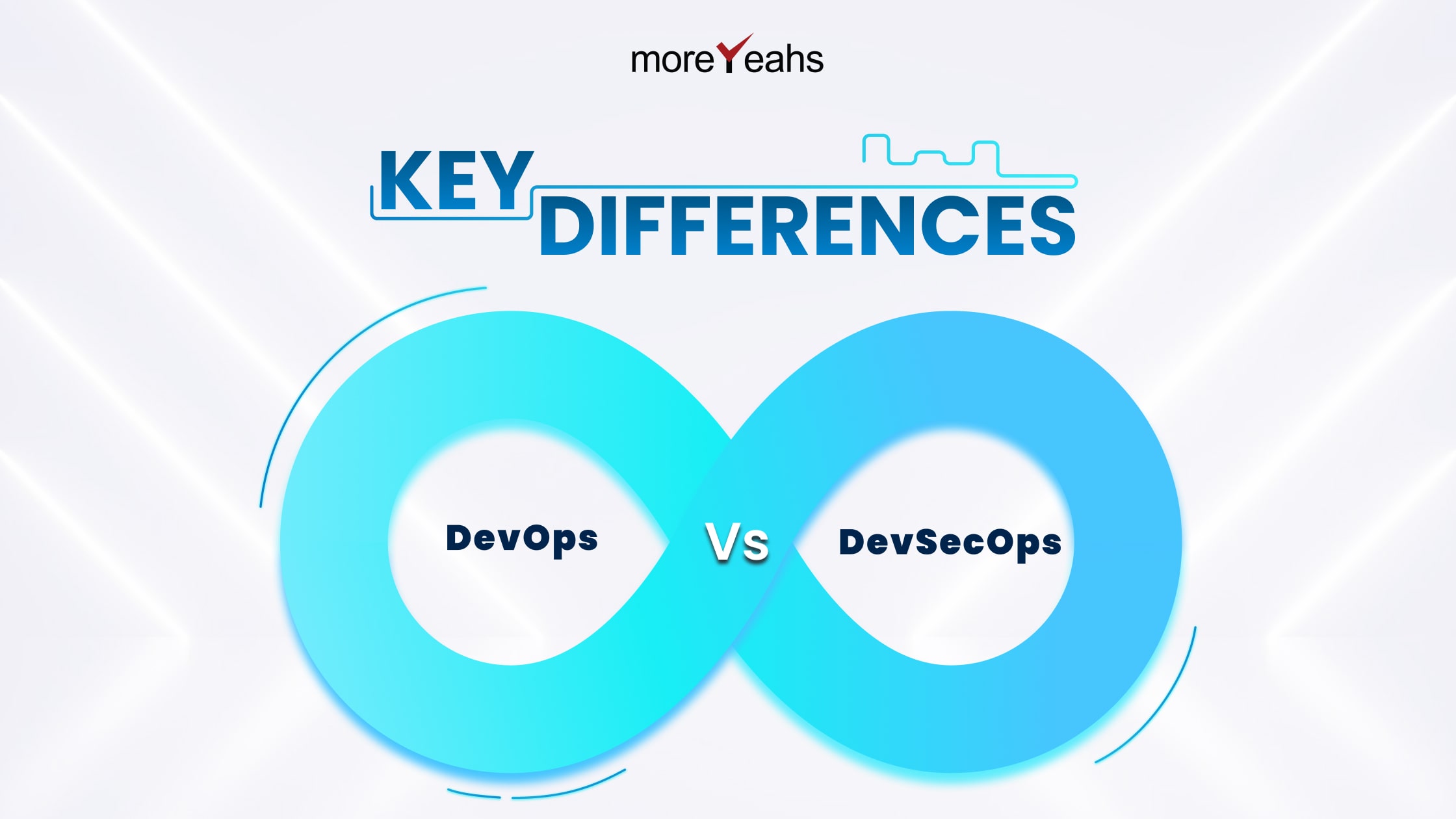
Table of Contents
ToggleWhat are the Differences Between DevOps and DevSecOps?
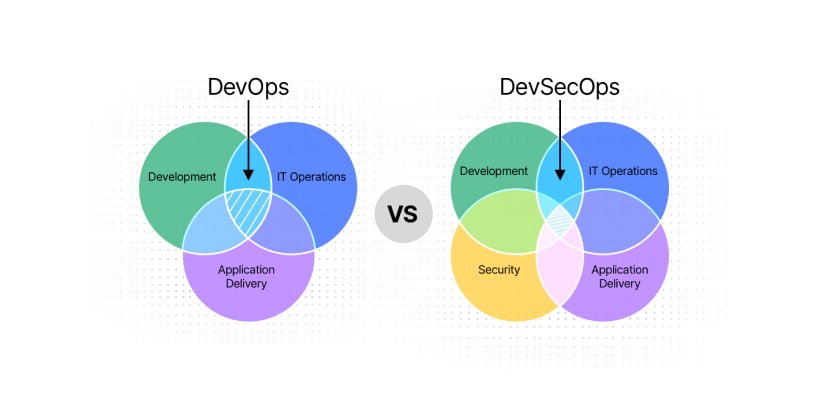
| DevOps | DevSecOps |
|---|---|
| The Prime focus is on development and Operation. | Focuses on development security and Operations. |
| Looks into providing speed and efficiency. | Ensures security and speed. |
| Mostly for Developers and IT Operations teams. | Teams of developers, security, and IT operations opt for DevSecOps. |
| Security features are added later in the pipeline. | Security features are included from the start. |
| Leverages Continuous Integration and Delivery processes. | DevSecOps leverages Continuous Integration, Delivery, and Security processes. |
| Tools such as CI/CD and Monitoring play a pivotal role. | CI/CD and Security tools are important here. |
| Leverages Agile framework. | Leverages Agile DevSecOps framework. |
| Emphasizes a culture of collaboration. | Emphasizes a security-oriented and collaborative culture. |
| Minimal risk management measures. | Proactive and Continuous risk management measures. |
| Focus on reactive compliance. | Focus on proactive compliance. |
| The automation scope of DevOps focuses mostly on development and deployment. | Its automation scope involves development, deployment, and security. |
| Vulnerability detection takes place after deployment. | Detects vulnerability early in the development cycle. |
What is DevOps?
How Does DevOps Work?
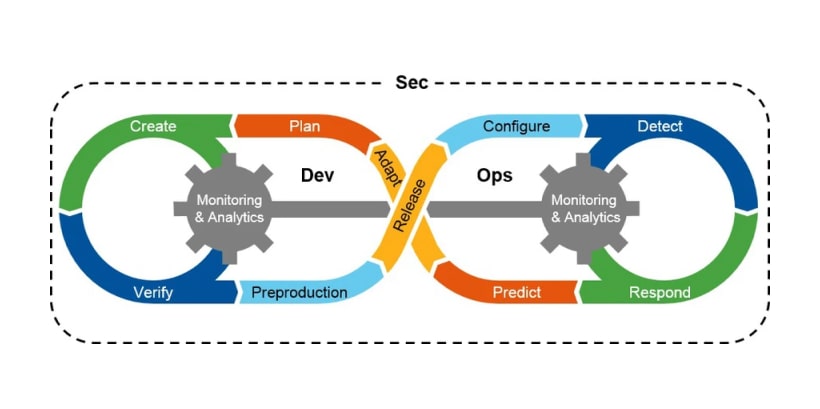
Key Features of DevOps
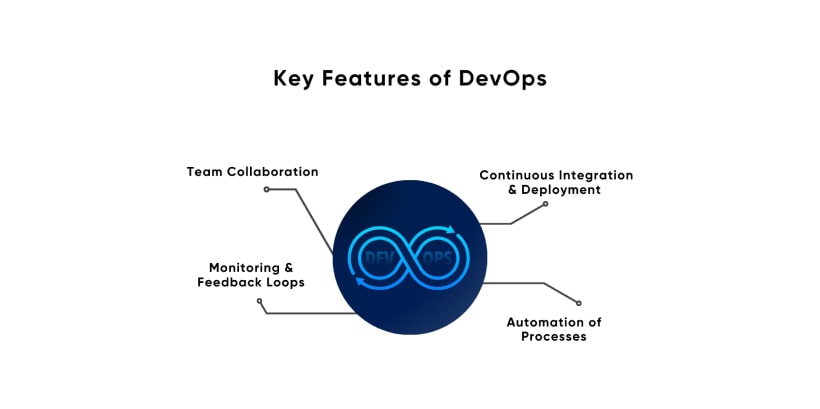
1. Automation: Streamlining Repetitive Tasks
2. Continuous Delivery: Frequent and Reliable Releases
3. Collaboration: Enhancing Communication Between Teams
4. Infrastructure as Code (IaC): Simplifying Resource Management
5. Scalability: Adapting to Business Needs
Tools Used in DevOps

1. Jenkins
2. Kubernetes
3. Docker
DevOps Best Practices
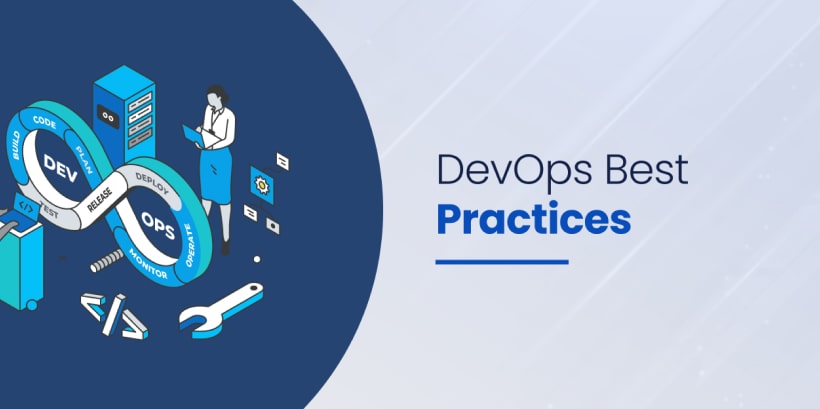
1. Adopt CI/CD Pipelines for Efficient Delivery
2. Automate Repetitive Processes for Consistency and Speed
3. Monitor and Log Actively to Identify Issues Early
4. Foster a Culture of Collaboration Across Teams
Benefits of DevOps
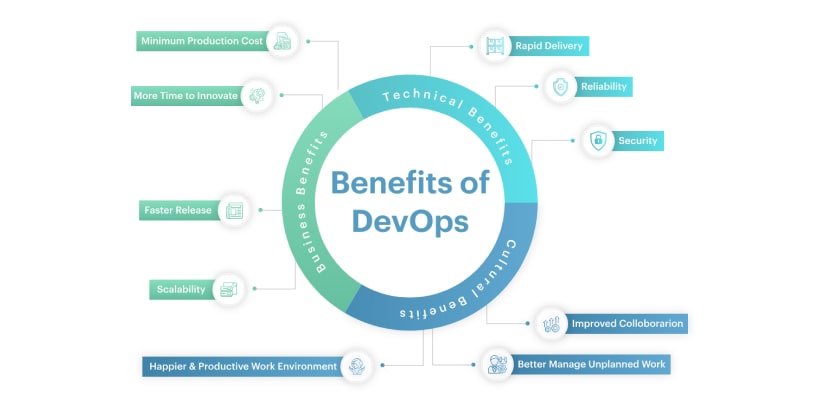
- Faster time-to-market.
- Scalability of processes.
- Enhanced product quality through continuous feedback.
- Improved collaboration and productivity.
- Cost-efficient as it minimizes downtime and manual labor.
Cons of DevOps
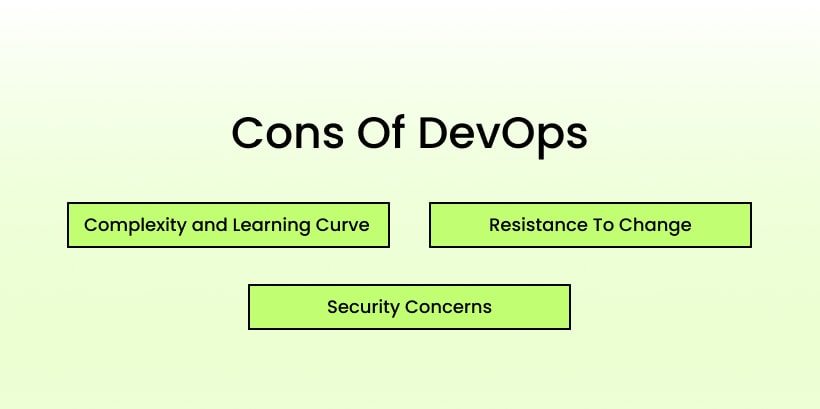
- Limited focus on security.
- Initial implementation challenges.
- Requires a cultural shift within teams.
What is DevSecOps?

How Does DevSecOps Work?
Key Features of DevSecOps
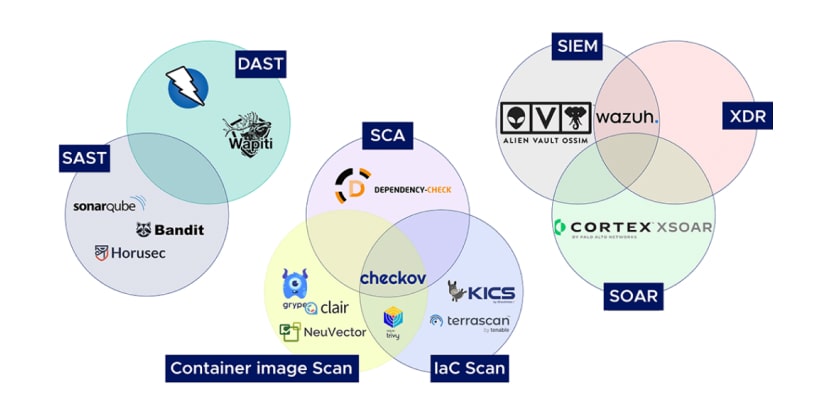
1. Continuous Monitoring: Ensure Real-Time Threat Detection
2. Integrated Security Tools: Streamline Threat Management
3. Collaboration: Unify Security with Development and Operations
4. Compliance: Automate Regulatory Adherence
Tools Used in DevSecOps
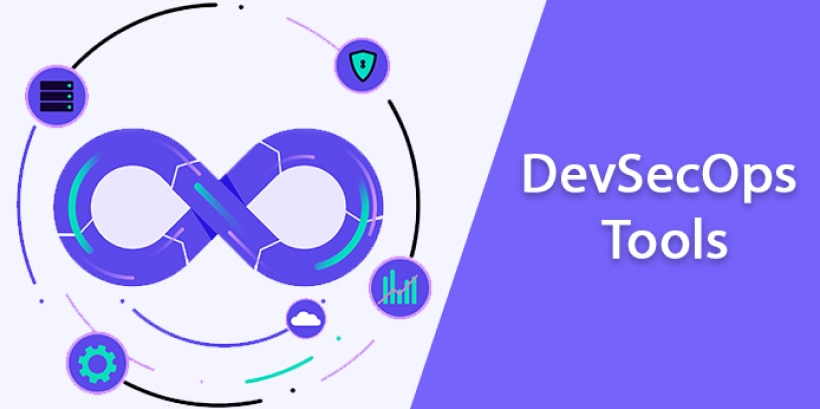
1. SonarQube
2. Aqua Security
3. HashiCorp Vault
DevSecOps Best Practices

- Incorporate security testing into CI/CD pipelines.
- Train teams to adopt a security-first mindset.
- Use DevSecOps frameworks for structured implementations.
- Regularly update and refine security tools and practices.
Benefits of DevSecOps
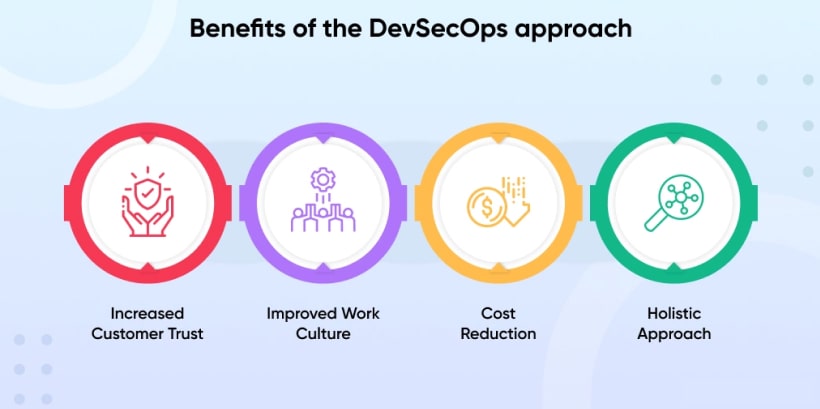
- Early detection and resolution of vulnerabilities.
- Increased trust in software security.
- Compliance with regulatory requirements.
- Enhanced collaboration between teams.
Cons of DevSecOps
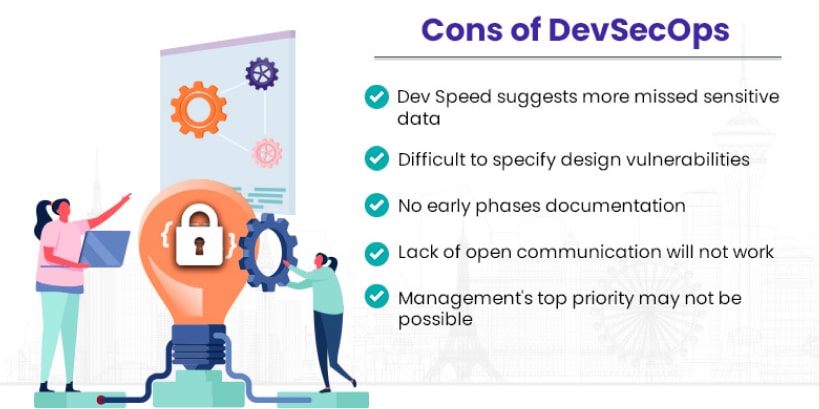
- Higher initial implementation costs.
- The steeper learning curve for teams.
- Requires continuous investment in security tools.
Final words
Frequently Asked Questions
DevSecOps and cybersecurity serve different purposes; DevSecOps integrates security into development, while cybersecurity focuses on broader organizational protection. You must use the former while building a product where cybersecurity is necessary; there is digitization involved.
Yes, the DevSecOps framework includes DevOps by extending its practices with integrated security measures throughout the software development and delivery lifecycle.
To move from DevOps to DevSecOps, consider integrating security tools, fostering collaboration, automating testing, and adopting a security-first mindset.
Azure DevOps and Microsoft Defender for Cloud are commonly used in DevSecOps to support CI/CD pipelines and enhance security.
Yes, DevSecOps aligns with Agile principles by emphasizing collaboration, continuous delivery, and iterative improvement while integrating security into development workflows.
Table of Contents
ToggleContact Us
